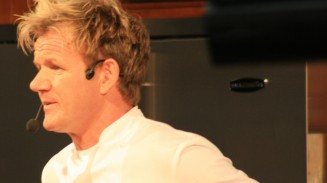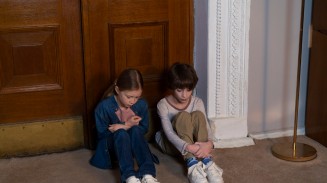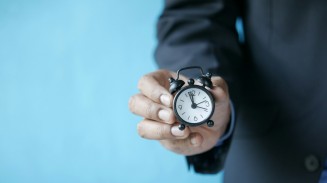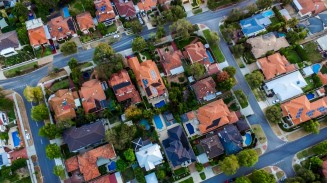Calum Lykan and James Costorphine work across the street from each other on Edinburgh's cobble-stoned Royal Mile and they also stand on opposite sides on the question of Scottish independence.
But both are happy to voice their views to a passer-by and do so with passion and conviction.
"This is a country that should be recognised in its own right. From our heritage, our history, our culture, we know who we are. It's in the heart," said Lykan, a professional story-teller dressed in a kilt and black shirt.
"I've been dead against it from the start," said Costorphine. "It's just not viable. It's too unclear. Why break something you've had for 300 years?"
The independence issue has provoked the most intense political debate in Scotland's modern history - possibly since the doomed Jacobite uprising of 1745.
In streets, pubs and meeting halls from the Highlands and Islands to deprived, shabby neighbourhoods of post-industrial cities, young and old have been talking about it for months and months. South of the border in England, it barely registered until a few weeks ago.
The vote takes place next Thursday, with the latest poll giving the unionists a slight edge over separatists.
Scottish newspapers are filled with letters every day - the Scotsman ran six-full pages on Wednesday - and social media has been a battleground. Bookshops have tables of books and pamphlets setting out the arguments for and against.
"It's exciting - people had been feeling like they can't make a difference for a long time until now because we've been governed by parties we didn't choose," said Kirsty Law, 24, who works in a music store specializing in Scottish folk.
The debate being played out in the media by the political leadership has now zeroed in on economic and financial issues, specifically what currency an independent Scotland would have and what big business might do.
But the discourse among the general public has often been about the wider political concepts of nationhood as well as matters such as education and nuclear weapons.
"It's mainly to do with democracy. I don't think Scotland is in a democratic position. Scotland has different needs to England and we'd be better off running ourselves and having more say in our future," said Law.
"Independence won't necessarily solve all Scotland's problems but it would give us the power to try to solve them."
Law, who was heading off after work to take part in pro-independence street canvassing, dismissed reports that banks and financial institutions were thinking of pulling out of Scotland should the vote go for a break from the United Kingdom.
But the uncertainty weighed on the mind of Kieran Cant, a 17-year-old student at Edinburgh's Academy of Music.
"I don't think it's worth the risk. One day it would be good to go independent, but not now. Salmond makes his points, but its polemics, not guarantees. There's no guarantee we'll get the pound."
Costorphine, 36, who has a business restoring drum kits, said the economic aspects were vital. Business, including his own, could suffer, he said.
He said he was happy to be associated with the other countries in the United Kingdom.
"Why fix something that's not broken? I'm Scottish and I'm British. I have a British passport," he said.
One notable aspect of the debate is how little supporters of either side have evoked heroes and episodes of Scotland's history such as William Wallace, Robert the Bruce and the 1314 Battle of Bannockburn, or Bonnie Prince Charlie and the Jacobite uprising, to claim the patriotic high ground.
It has been very much about Scotland's future. Nor has there been much venting of anti-English sentiment from the independence camp.
"It's not about 'Braveheart' and hating the English, I won't have that. I'd vote 'No' if it was about that," said Lykan.
His friend, tour guide Justin Davis, also wearing a kilt, said he had been firmly against independence until he did his reading and research.
"The crux of my 'Yes' vote is that for the past 15 years of having a Scottish parliament, they have passed dozens of policies that have benefited us all immensely. For 50 years, we've seen no policies from London that have benefited us."
And should Scotland become independent "We will make mistakes, there will be hiccoughs," he said.
On a misty Friday morning on Princes Street, overlooked by Edinburgh Castle, 24-year-old student Michael Hulse was handing out leaflets with figures claiming to show how an independent Scotland's income could not match its spending.
Hulse said he was only leafleting to earn some money, but would be voting "No".
"I have emotional ties to the union. I've always considered myself British. I have English family. I can see why people are fed up with Westminster - my own politics are to the left.
"But I do want what's best for Scotland."
Copyright Thomson Reuters. All rights reserved.
Get the Most Popular Lawyerherald Stories in a Weekly Newsletter





